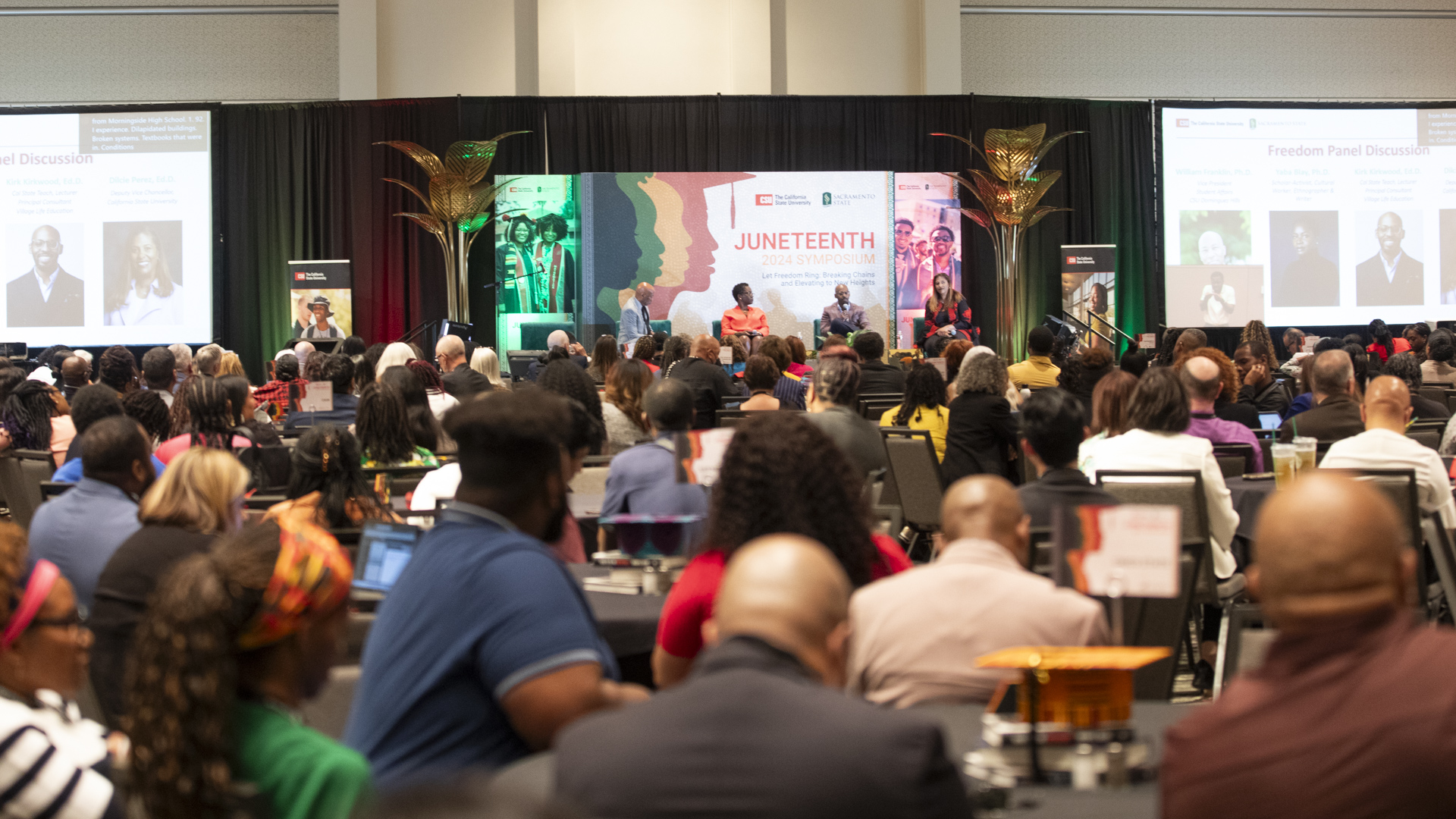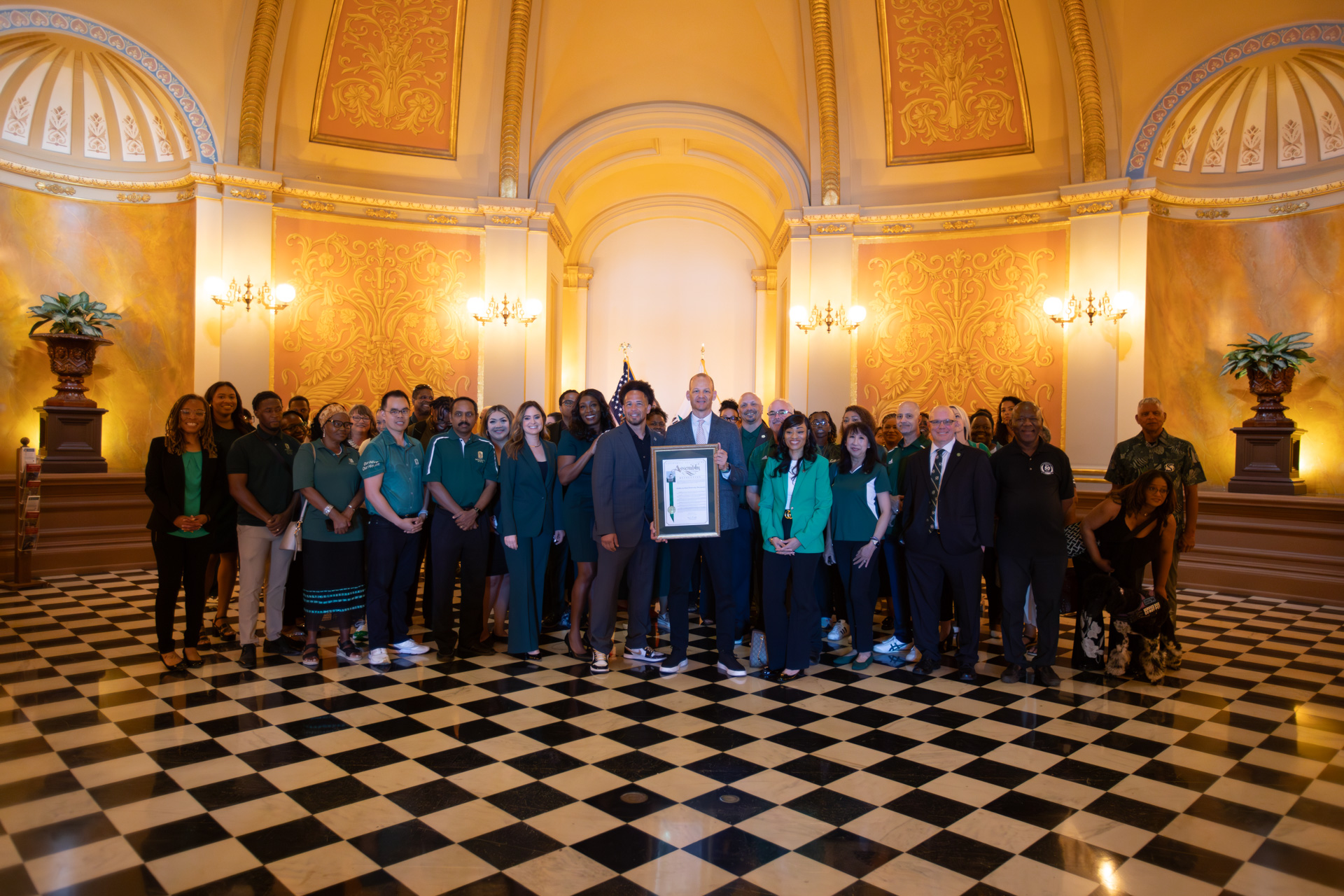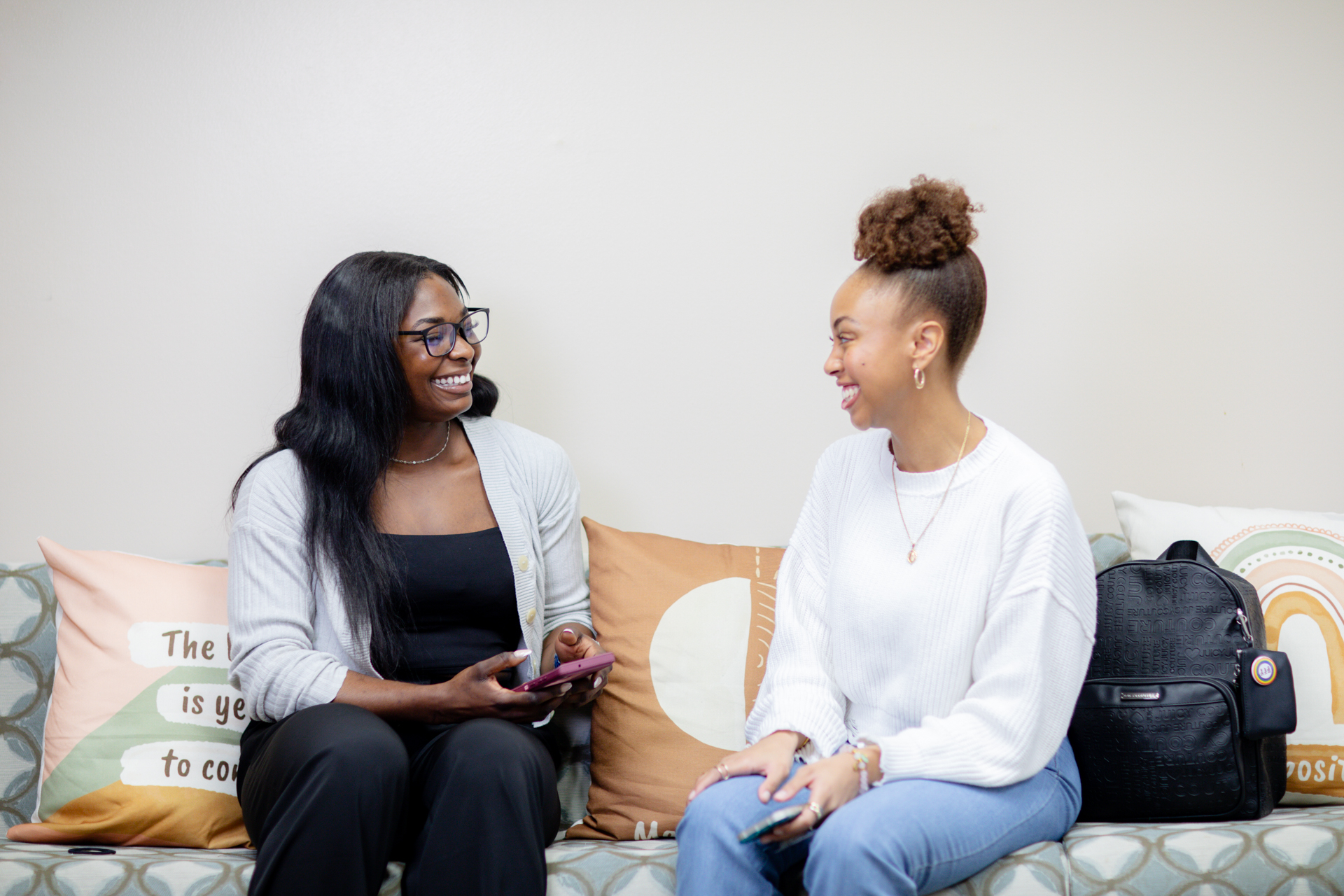Story Content
Sac State hosts CSU Juneteenth Symposium focusing on antiracism, Black student success
June 17, 2024
Sacramento State and the CSU are turning aspirations into actions to elevate Black students in their academic journeys, speakers said as they kicked off the CSU Juneteenth Symposium last week.
Sac State was the host campus for this year’s edition of the event, the second, which took place June 13-14 at the downtown SAFE Convention Center. More than 700 faculty, staff, administrators, students and special guests participated in person, and thousands of others attended virtually.
Juneteenth is an annual celebration of the end of slavery in the United States that is observed on June 19. But participants in last week’s symposium said it should resonate throughout the year.
- See more photos from the Juneteenth Symposium
- Watch: The Juneteenth Symposium featured speakers and music performances
The event featured speakers and panel discussions that highlighted antiracism work underway across the CSU’s 23 campuses and explored strategies for advancing Black student success. Participants vowed to build upon programs launched following the inaugural symposium two years ago.
A diverse group of speakers touched on topics ranging from the origins of Juneteenth to ongoing initiatives designed to help Black scholars succeed in college and beyond. Breakout sessions focused on issues such as the experiences of Black women in academia, strategies for retaining faculty of color and the empowerment of Black student leaders.
“This institution has a moral imperative to make sure that our Black students succeed. The status quo is not an option.” -- Jack Clarke Jr., CSU Board of Trustees chair
Sabrina Charleston, vice president of Sac State’s Black Student Union, called Juneteenth “a consequential day of reflection” across the United States.
“For me, it’s a recognition of all of the things our ancestors dreamed about,” Charleston said. “I am living that dream.”
Jack Clarke Jr., chair of the CSU Board of Trustees, said the Juneteenth symposium speaks to the system’s commitment to all of its students.
“Education equals freedom,” Clarke said. “There is no better way to elevate your life than through higher education.
“This institution has a moral imperative to make sure that our Black students succeed. The status quo is not an option.”
CSU Chancellor Mildred Garcia highlighted Sac State’s recent accomplishments, including establishing the nation’s first Black Honors College, its appointment as the site of the CSU’s central office for Black Student Success and the leadership of President Luke Wood.
“This is what it means to lead the way in Black student success,” she said.
The Black Honors College incorporates many of the goals and actions for supporting Black students that the Chancellor’s Office has identified, said Wood.
“We decided that we wanted to do an intervention that incorporated most of the Chancellor’s Office’s recommendations,” he said, including developing an enrollment strategy for Black students, creating welcoming spaces for them and investing in Black staff and faculty support.
But Thursday’s keynote speaker, Pulitzer Prize-winning reporter Nikole Hannah-Jones, cautioned that programs and policies that protect and uplift Black students are under attack across the country.
“We are headed for some very difficult times” in higher education, said Hannah-Jones, whose reporting focuses on racial justice. She cited a serious backlash against programs that highlight diversity, inclusion and inequality, adding, “I think we are entering a very dark period.”
Hannah-Jones said students and others must speak out to ensure that progress continues toward supporting and uplifting Black people.
“Social change is led by young people, including college students,” she said.
“The opposition is very organized, and very well financed. The antidote is resistance.”

Media Resources
Faculty/Staff Resources
Looking for a Faculty Expert?
Contact University Communications
(916) 217-8366
communications@csus.edu


